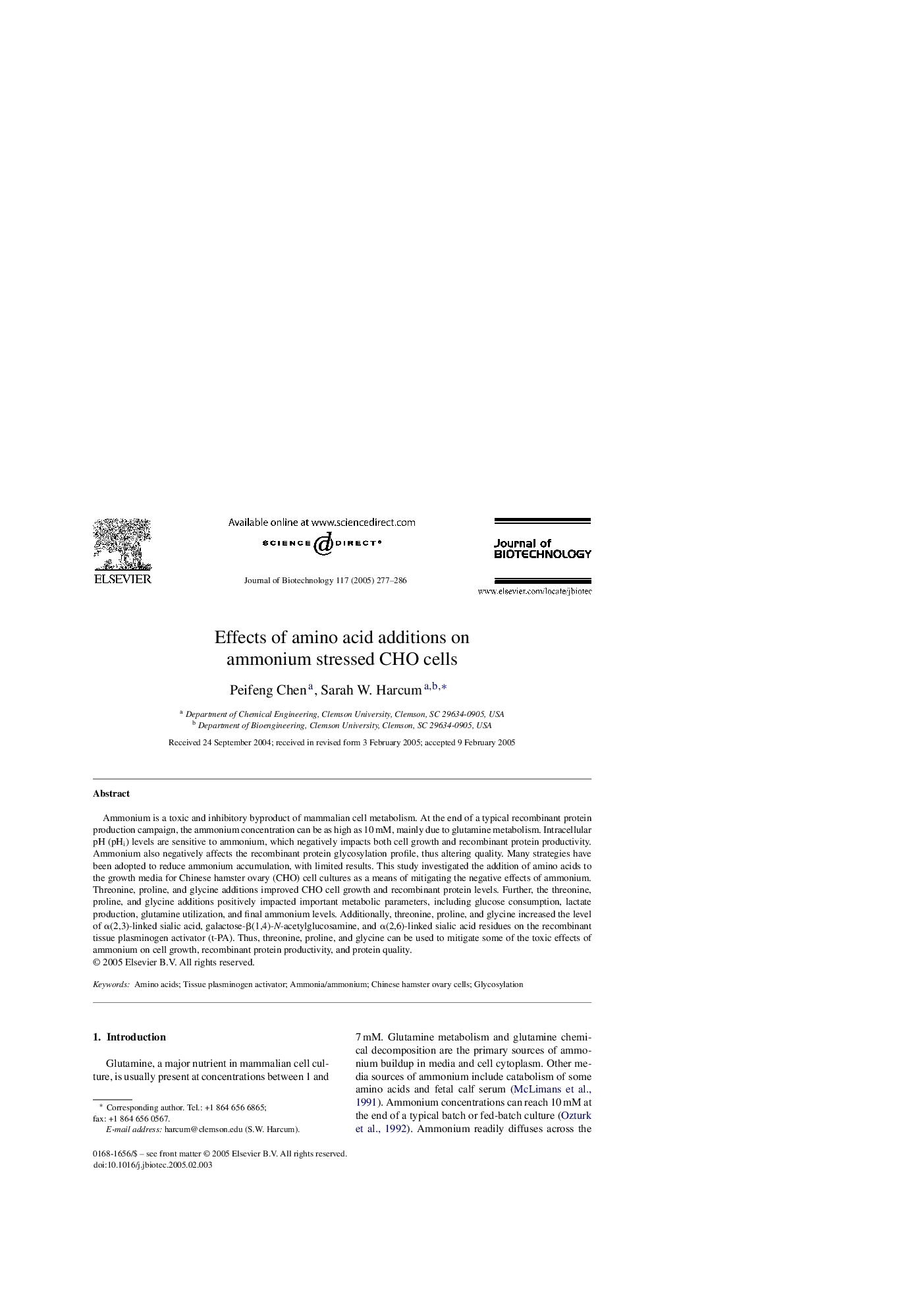| کد مقاله | کد نشریه | سال انتشار | مقاله انگلیسی | نسخه تمام متن |
|---|---|---|---|---|
| 9604385 | 43628 | 2005 | 10 صفحه PDF | دانلود رایگان |
عنوان انگلیسی مقاله ISI
Effects of amino acid additions on ammonium stressed CHO cells
دانلود مقاله + سفارش ترجمه
دانلود مقاله ISI انگلیسی
رایگان برای ایرانیان
کلمات کلیدی
موضوعات مرتبط
مهندسی و علوم پایه
مهندسی شیمی
بیو مهندسی (مهندسی زیستی)
پیش نمایش صفحه اول مقاله

چکیده انگلیسی
Ammonium is a toxic and inhibitory byproduct of mammalian cell metabolism. At the end of a typical recombinant protein production campaign, the ammonium concentration can be as high as 10 mM, mainly due to glutamine metabolism. Intracellular pH (pHi) levels are sensitive to ammonium, which negatively impacts both cell growth and recombinant protein productivity. Ammonium also negatively affects the recombinant protein glycosylation profile, thus altering quality. Many strategies have been adopted to reduce ammonium accumulation, with limited results. This study investigated the addition of amino acids to the growth media for Chinese hamster ovary (CHO) cell cultures as a means of mitigating the negative effects of ammonium. Threonine, proline, and glycine additions improved CHO cell growth and recombinant protein levels. Further, the threonine, proline, and glycine additions positively impacted important metabolic parameters, including glucose consumption, lactate production, glutamine utilization, and final ammonium levels. Additionally, threonine, proline, and glycine increased the level of α(2,3)-linked sialic acid, galactose-β(1,4)-N-acetylglucosamine, and α(2,6)-linked sialic acid residues on the recombinant tissue plasminogen activator (t-PA). Thus, threonine, proline, and glycine can be used to mitigate some of the toxic effects of ammonium on cell growth, recombinant protein productivity, and protein quality.
ناشر
Database: Elsevier - ScienceDirect (ساینس دایرکت)
Journal: Journal of Biotechnology - Volume 117, Issue 3, 25 May 2005, Pages 277-286
Journal: Journal of Biotechnology - Volume 117, Issue 3, 25 May 2005, Pages 277-286
نویسندگان
Peifeng Chen, Sarah W. Harcum,